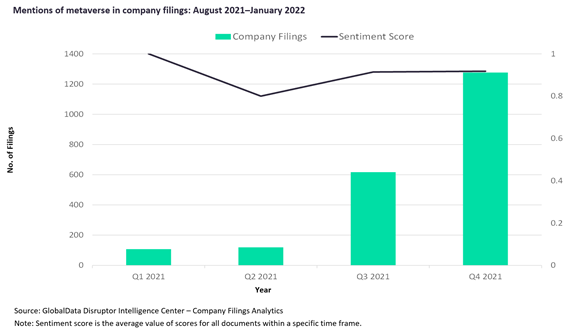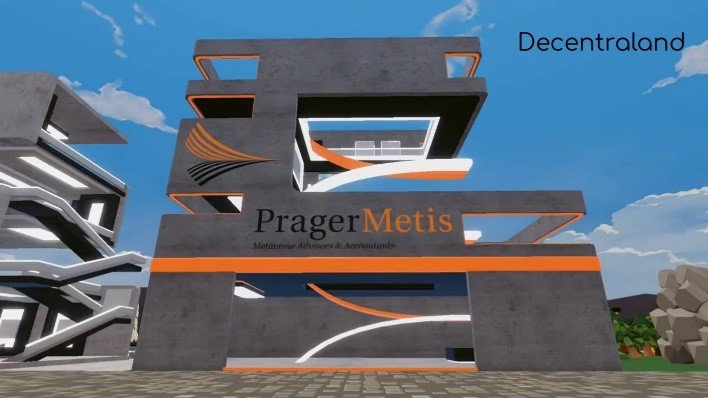Portfolio expansion
Brave New World: how accounting firms are exploring the metaverse
Shabnam Pervez, Analyst, Thematic Research, GlobalData, offers IAB readers a peak into the Metaverse, to a 3D future for accountancy ventures owning assets in the virtual world

The metaverse will be one of the hottest themes of 2022, and accountancy firms are already queuing up to stake their claim. The metaverse’s main use in professional services has yet to be fully established, but that hasn’t stopped PWC from investing in this brave new world. That alone will wake accountancy firms worldwide to the possibilities.
So, what is the metaverse?
At GlobalData, we define the metaverse as a virtual world where users share experiences and interact in real-time within simulated scenarios. The firms brave enough to invest in the metaverse now are likely to be winners in 10 years’ time. The term metaverse was first coined in 1992 in Neal Stephenson’s novel Snow Crash. Stephenson’s fictional concept has blossomed into one of tech’s biggest themes. Facebook’s rebranding of itself as Meta and increasing merger and acquisition (M&A) activity, such as Microsoft’s $69bn acquisition of gaming company Activision Blizzard, demonstrate that the metaverse is at the center of Big Tech planning.
The GlobalData chart below reflects increased numbers of filings referencing the metaverse.

PwC makes its move
On 23 December 2021, PwC’s Hong Kong office purchased a virtual plot of land from The Sandbox, a metaverse building platform. The transaction highlights PwC’s interest in providing services and products through virtual reality-based communications.
In a statement to Consultancy UK, William Gee, a partner at PwC Hong Kong, explained: “The metaverse offers new possibilities for organiations to create value through innovative business models, as well as introducing new ways to engage with their customers and communities.”
He added that PwC plans to use its expertise to advise clients who wish to embrace the metaverse on the full range of challenges and opportunities it presents.
Sebastien Borget, chief operating officer of The Sandbox, said the platform enables new “ways for brands to connect with customers,” suggesting PwC will predominantly use the metaverse to bolster communication.
The Sandbox enables users to engage in ecommerce, including the use of non-fungible tokens (NFT), with units of data stored on a blockchain to certify ownership of a digital asset like images, audio, videos, or other types of collectibles such as books, blogs, and tweets. The NFT market continues to grow, although some regard it as a speculative bubble.
PwC’s purchase of the plot of land in the Sandbox comes after US hip hop star Snoop Dogg partnered with The Sandbox to sell 122 pieces of land and 67 premium plots.
On 28 December 2021, accountancy firm Prager Metis joined the metaverse race by purchasing a virtual three-storey building for $35,000 from 3D virtual world browser, Decentraland. On 7 January 2022, Prager Metis announced it had become the first certified public accountancy (CPA) firm to open its virtual headquarters in the metaverse. The firm will be using its virtual premises for rooftop events, meetings, and as a gallery space for NFTs. In a statement, Prager Metis' CEO Glenn Friedman said the new headquarters will "serve as a bridge between traditional and digital and offer valuable real-world financial services to the metaverse."
Decentraland visualisation




How can accountancy firms benefit from a move to the metaverse?
- Improving client engagement
Client relationships are vital for accountancy firms, with the COVID-19 pandemic emphasising their importance. In situations where in-person client meetings are not possible, the metaverse will offer a new environment to facilitate client connections.
- Providing greater scope for supportive training
Accountancy relies on structured training to facilitate employee development. However, as a result of lockdowns, accountancy firms have struggled to train and develop entry-level and junior employees while working virtually. The metaverse will use virtual and augmented reality and 3D avatars to support face-to-face training in a remote work environment.
- Increasing employee interactions
Accountancy firms’ encouragement of remote working has resulted in a shift in team dynamics. The lack of face-to-face contact can make effective employee interaction challenging. Firms can maintain traditional communication patterns globally with their employees by incorporating the metaverse in the workplace. The metaverse’s immersive nature will allow employees worldwide to host intimate, virtual in-person meetings.
- Rethinking commercial operations
The pandemic has transformed the way organisations, across all sectors, operate, and accountants are no different. Before COVID-19, most clients preferred in-person interactions over online meetings. But remote working and a reluctance to travel has forced organisations to rethink and retool their commercial operations. The metaverse could become a bridge between meeting online and maintaining a physical presence.
While the metaverse is in its infancy and still largely conceptual, that hasn’t stopped the profession’s big guns from exploring the commercial possibilities it has to offer.

Shabnam Pervez (MBPsS) is a thematic analyst in GlobalData's London office. Pervez has been working on the thematic team for two years, focusing on emerging technology trends.



